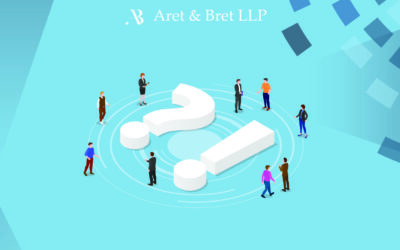Part 1
The Minister of Finance recently signed the Deduction of Tax at Source (Withholding) Regulations 2024 (‘WHT Regulations 2024’ or ‘Regulations’). The Regulations, which have not been gazetted, concern the withholding tax regime in Nigeria. This publication answers some frequently asked questions on the Regulations ranging from the meaning of WHT, the constitutionality of the WHT Regulations 2024, eligible transactions and applicable rates to obligations on small companies and individuals.
Question 1: What is withholding tax?
Withholding tax is a recovery method provided by law which is aimed at the effective and efficient recovery or collection of income tax. It is not a separate tax but only a method developed to recover or collect income tax due from individuals and companies (‘taxpayers’ or ‘suppliers’).
It is therefore the prepayment or payment in advance of income tax by income taxpayers or suppliers of goods and services before they are actually assessed for income tax for the year. The prepayment is achieved by the obligation imposed by law on certain persons to deduct certain rates on payments at source due to the income taxpayer or supplier on eligible transactions. The money deducted at source is then remitted to the Federal Inland Revenue Service (‘FIRS’) or the State Internal Revenue Service (‘SIRS;) on behalf of the income taxpayer or supplier.
When the taxpayer is assessed for income tax, the amount deducted at source would serve as a credit to the taxpayer. Where the amount deducted at source is more than the tax liability of the taxpayer, the FIRS or SIRS would refund the excess to the taxpayer. The excess may equally be applied to future income tax liability of the taxpayer.
Question 2: Where can one find the eligible transactions and applicable WHT rates?
All the eligible transactions and applicable rates for withholding tax in Nigeria can be found in the First Schedule to the WHT Regulations 2024 (see the end of this publication).
This is one of the commendable aspects of the WHT Regulations 2024. Before these Regulations, a person would have to consult the following laws and subsidiary legislation to know the eligible transactions and rates: 1) Companies Income Tax Act (as amended) (‘CITA’); 2) Personal Income Tax Act (as amended) (‘PITA’); 3) Petroleum Profit Tax Act (‘PPTA’); ( 4) Capital Gains Tax Act 5) Companies Income Tax (Rates, etc. of Tax Deducted at Source (Withholding Tax) Regulations 1997; 6) Personal Income Tax (Rates, etc., of Tax Deducted at Source (Withholding Tax) Regulations 1997; 7) Companies Income Tax (Rates etc., of Tax Deducted at Source (Withholding Tax) Amendment Regulations, 2016; 8) Finance Act 2019; 9) Finance Act 2021 etc.
Question 3: Is the WHT Regulations 2024 constitutional and enforceable?
Yes, but certain portions of the Regulations appear unconstitutional and ultra vires the powers of the Minister of Finance.
Notably, the WHT Regulations 2024 constitute a subsidiary legislation made pursuant to the powers conferred on the Minister of Finance by s 81 (9) CITA; s 73 (6) of the PITA and s 56 of the PPTA. These Acts empower the Minister of Finance to make regulations to carry out the provisions of the Acts relating to withholding tax on certain transactions not specifically mentioned under the law.
For instance, the CITA and PITA have specific provisions relating to withholding tax on interest or royalty, rent, dividend and director’s fees. The Minister is therefore empowered to make Regulations that cover other transactions not mentioned in the CITA and PITA. The provisions of the WHT Regulations 2024 are therefore constitutional and enforceable.
We note however that the WHT Regulations 2024 purport to increase the WHT rate for director’s fee. In this regard, the Regulations provide for the withholding of 15% of the director’s fee due to individuals resident in Nigeria and 20% of the director’s fee for non-resident individuals. This part of the Regulations appears unconstitutional and ultra vires the powers of the Minister of Finance. This is because the PITA has specific provisions relating to directors’ fee and the rate stipulated under the PITA is 10% of the director’s fee. The provisions of the PITA on director’s fee are superior to the content of the Regulations.
Nigerian law is well settled that a subsidiary legislation cannot override the principal legislation. The implication is that the rates stipulated for directors’ fee under the Regulations are null and void as they are outside the powers of the Minister of Finance.
Question 4: Does an Individual have an obligation to deduct tax at source and remit on behalf of the supplier or taxpayer?
No. Individuals do not have the obligation to deduct withholding tax at source. In other words, individuals involved in any eligible transaction cannot withhold any portion of the payment due to the supplier or taxpayer. Rather the individual is obliged to make full payment to the taxpayer or supplier as there is no law requiring the individual to withhold any such payment and remit to the FIRS or SIRS.
Question 5: Are payments accruing to individuals liable to withholding tax?
Yes. Payments accruing to individuals on eligible transactions are liable to withholding tax.
Question 6: The Regulations talk about ‘small company’: what qualifies a company as such?
A small company in Nigeria has two meanings. There is the small company as defined under s 394 of Companies and Allied Matters Act 2020 and small company as defined under s 105 of CITA (as amended by the Finance Act 2019). Under the former, the turnover of the company amongst other qualifications must not be more than ₦125,000,000 (One Hundred and Twenty-Five Million) or any amount as fixed by the Corporate Affairs Commission while under the latter, the company must earn gross turnover of ₦25,000,000 (Twenty-Five Million) or less.
However, the Regulations adopted ‘small company’ as defined under the s 105 of CITA (as amended by the Finance Act 2019). In other words, to qualify as a small company under the Regulations, the company must earn a gross turnover of ₦25,000,000 (Twenty-Five Million) or less.
Question 7: Does a small company have an obligation to deduct tax at source and remit on behalf of the supplier or taxpayer?
The answer would depend on the circumstances and the monetary worth of the eligible transaction.
Where a small company is to make payment to a supplier and the supplier does not have a Tax Identification Number (‘TIN’), the small company is obliged to deduct tax at source and remit to the FIRS or SIRS. In this regard, it does not matter the amount involved in the eligible transaction.
Where the supplier or income taxpayer has a TIN and the transaction amount is ₦2M or less, the small company is not obliged to deduct tax at source and remit to the FIRS or SIRS.
However, where the supplier or income taxpayer has a TIN and the transaction involves an amount which is above ₦2M, the small company is obliged to deduct tax at source and remit to the FIRS or SIRS as the case may be.
Question 8: Are payments accruing to a small company liable to withholding tax?
The answer should ordinarily be no since a small company is not liable to pay company income tax in Nigeria.
However, FIRS requires entities dealing with small companies to withhold tax from payments due to small companies and remit to FIRS. The small companies may then request for refund from FIRS where they have fulfilled the condition for the exemption of its profit from tax. See FIRS Circular No. 2022/03 on Clarification on the Exemption of Small Companies from Income Tax dated 11 April 2022.
The FIRS Circular is reasonable since the entity dealing with a small company may not know that the company is a small company under s 105 of CITA. Again, no one, not even the small company can really tell what the gross turnover of the company would be at the end of the fiscal year.
The implication is that payments accruing to a small company are liable to withholding tax and deduction should therefore be made at source and remitted to FIRS. The small company is entitled to request for a refund of the withholding tax deducted and remitted to FIRS.
Question 9: Is FIRS the sole recipient of withholding tax?
No. Withholding tax for an individual resident in a State is remitted to the SIRS.
Withholding tax for companies is remitted to FIRS. Similarly, withholding tax deductions for the following persons are remitted to FIRS:
(i) persons employed in the Nigerian Army, the Nigerian Navy, the Nigerian Air Force, the Nigerian Police Force other than in a civilian capacity; (ii) officers of the Nigerian Foreign Service;
(iii) every resident of the Federal Capital Territory, Abuja; and
(iv) a person resident outside Nigeria who derives income or profit from Nigeria.
Question 10: What is the commencement date of the Regulations?
The commencement date of the Regulations is 1 July 2024. However, for withholding tax arising from winnings from lottery, gaming, reality shows and similar activities, the commencement date is 1 October 2024. It is entirely possible that the Minister of Finance may change these dates before the Regulations are gazetted.
Question 11: How do the Regulations affect ongoing contracts?
This question and others relating to what happens where a supplier insists that no deduction should be made from payment due to the supplier; the exemptions granted under the Regulations, the penalties and enforcement of the penalties stipulated in the Regulations etc. shall be addressed in Part 2 of this publication.
ELIGIBLE TRANSACTION AND APPLICABLE RATES AS FOUND IN THE FIRST SCHEDULE TO THE REGULATIONS
| Transactions | Corporate Recipients | Non-Corporate Recipients | Remarks | ||
| Resident | Non-resident | Resident | Non-resident | ||
| Dividend, Interest | 10% | 10% | 10% | 10% | Rates as specified in the law |
| Royalty | 10% | 10% | 5% | 5% | Rates as specified in the law |
| Rent, Hire or Lease | 10% | 10% | 10% | 10% | Rates as specified in the law |
| Commission, consultancy, technical, management, and professional fees | 5% | 10% | 5% | 10% | Higher rates for non-residents to serve as final tax |
| Supply of goods or materials other than by the manufacturer or producer | 2% | N/A | 2% | N/A | Simplified description and reduced rate to address margin |
| Co-location and telecommunication tower services | 2% | 5% | 2% | 5% | Lower rate to reflect low industry margins |
| Supply or rendering of services other than those specifically listed in the Schedule | 2% | 5% | 2% | 5% | Simplified description and reduced rates |
| Construction of road, bridges, building and power plants | 2% | 5% | 2% | 5% | Further rate reduction to reflect lower margin |
| Any other form of construction and related activities | 5% | 10% | 5% | 10% | Amount due from non-resident is final |
| Brokerage fee | 5% | 10% | 5% | 10% | Subject to para. 7(11) |
| Directors’ fee | N/A | N/A | 15% | 20% | Rates reflect marginal PIT rate for directors |
| Compensation for loss of employment | N/A | N/A | 10% | 10% | Section 36 of CGT Act |
| Entertainers and sportpersons | N/A | 15% | N/A | 15% | Applies on amounts earned in Nigeria |
| Winnings from lottery, gaming, reality shows, etc. | N/A | N/A | 5% | 15% | With effect from 1 October 2024 |
Note: This article does not constitute a legal advice. For proper legal advice or inquiries on the issues raised in this article or general inquiries relating to withholding tax and taxation in Nigeria, please contact Aret & Bret LLP at [email protected]. You can also reach out to the author:
ISDORE OZUO
Partner, Aret & BRET LLP
[email protected]
+234 (0) 703 171 4942
+234 (0) 706 757 9577
www.aret-bret.com




